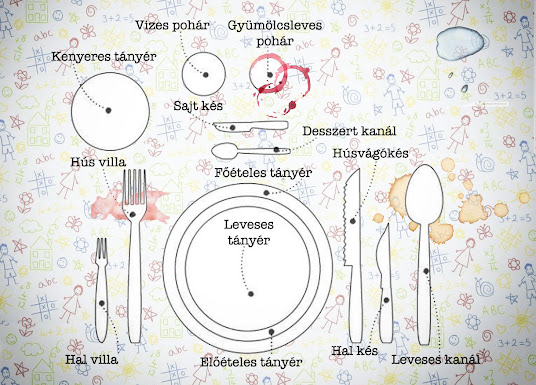Dad Archetypes: Your Everyday Fathers (Part 1)
Grabbing hold of "points of temporal density" has caused headaches for boffins in physics, maths, and even modern literary representation. For me, it's always been a right faff on the playground. For ages, it seemed totally random when I'd bump into other dads there, and when it was just a sea of mums. But if you’re a constant fixture in a certain space (and with three kids, that’s easily me), letting the weather, time of day, weekdays, and weekends vary, you can make some cracking observations about parent types. What's more, the number of kids I had with me — say, one, two, or three — seemed to dictate which other parents I'd end up chatting to. And while the kid-count tells you a fair bit about a parent's likely behaviour, how they handle kiddie conflicts? Now that's the proper calling card for slotting them into a box. Just as Bolzano-Weierstrass's theorem on accumulation points in topology is wildly generalising, so too will this upcoming typology of dads be. Partly because I've spent loads of time with certain types, and others, even if I knew them, only a little. And some blokes just aren't on playground duty; I usually catch them down the pub. Right then, let's meet the everyday dads:
The Egalitarian
First up, in roll François’s daughters, followed by Mr. Easy-Breezy himself on his white scooter. Having kicked off a green project in Germany, he’s now the supportive background player in London, helping his wife's career. He’s got all the home stuff nailed; he’s equally handy with a spanner and a nappy. His daily routine involves sorting the girls' breakfast and scooting them off to school, then he’s at home checking things are still buzzing in Germany, before rattling through a few conference calls. He budgets a precise half-hour for kitchen duties before heading off to pick up the kids from school, then it's straight to the playground, always arriving with his own takeaway coffee. He always seems to have time on his hands, and his infinite patience is only outdone by his unwavering sense of justice. What a legend.
Peter Pan
Andrew only pops up once or twice a week, but when he does, it’s the highlight of the afternoon, 'cause he genuinely thinks he’s one of the kids. In his wake, you’ll find a trail of bent or broken springy toys and swings. After escaping the spaceship climbing frame, we learned his arm was in a sling because he'd livened up his four-year-old's birthday party by trying out the new bike present, then legged it to A&E without even waiting for the cake, just to get his shoulder put back in. Andrew's a whiz at kids' gift ideas; he can waffle on for ages about the scale of model trains, types of RC helicopters, all sorts of gadgets – some of which he's actually bought, but little Dan isn't allowed to play with them yet. If our little 'blokes on a bench' circle veers into politics, parenting, or generally heavier topics, he quietly slopes off, probably to try out the freshly mended slide before he eventually tracks down little Dan.
The Helicopter Dads
James always rocks up with his wife on weekends, and they usually do a lap of the playground, buzzing around little Lisa, deciding which piece of equipment she can climb on – holding her hand, of course, and lifting her off at the end. All three of them even pile into the sandpit, meticulously checking for hidden cat poop. So, James rarely joins us, the irresponsible dads, who let their kids wander off (within the fence, obviously) exposing them to all sorts of lurking dangers. On these rare occasions, the programmer dad gives us a crash course from internet info on the latest recalled toys, and what kinds of accidents kids suffer thanks to thoughtless parents. It was also from him – when Liza turned up with a plaster on her leg – that we learned cupboard child locks can also be a source of injury if the cupboard contains some sweets and the kid tries to pry the door open with their foot. Genius.
The Blokes I Catch Down the Pub on a Friday Night:
The 'Dad' in Name Only
Nikol wants to be a dad, and biologically he is, but while he scorns the traditional father role, he hasn't found another one yet. He doesn't really have the time anyway, 'cause he's usually grafting overtime, so he only gets the family news on weekends. He's never been to a school event, and what's more, his daughters aren't keen on watching footy on the big screen or the weekend Fulham matches. Bless him.
The Moaner
Robert's a fan of the melancholy pint. Once it's just the two of us, he'll, every single time, detail exactly why he has the most problematic relationship with his kids. He wants to open up to them, but it just doesn't work. Then he resorts to traditional methods, but he consistently flunks those too, and ends up riddled with guilt afterwards. Sometimes he lets himself off the hook – work, stress, you know – other times he delivers a lengthy judgment on himself for being impatient, bossy, and always saying no. Luckily, his wife understands him, and she's even better to him than his own mum was.
The Hipster
Ben's an old-school hipster; still rocks a laptop, wears Ray-Ban Wayfarers, swears by quality coffee and artisan sausages – when he's not in his veggie phase, that is. He's incredibly critical of barbers and travels across London just to get his beard trimmed. We never see him at the playground, only at the pub in the evening. And when he's there, he's either got a petition for the council to put Scottish sea sand in the sandpit because it has less sodium-potassium and therefore absorbs fewer bad city vibes, which are harmful to children, or he's lecturing on alternative energy products and boasting about his latest gadget. He delivers a lecture rather than having a chat, he's well-informed about everything from the internet, and has firm opinions. He knows exactly how to raise kids, and he's not shy about telling us, who are visibly uncertain about many things.
The series is far from over, but nailing a point of spatial density isn't easy, as stories criss-cross, and anyway, it's bath time. The father types, approached with micro-historical methods, are schematic, but thankfully, they're capable of development even in their own uncertainty. The other stroke of luck is that I'm not like that, but my mate? He's spot on. I'll soon be delving deeper into their re-imagined mental history aspects.
ruben agocs










